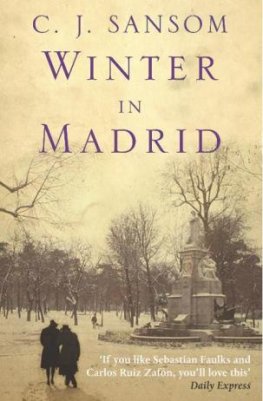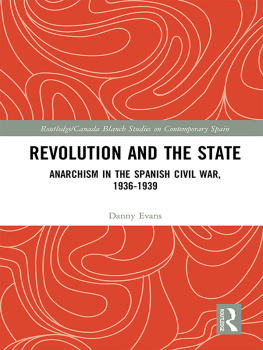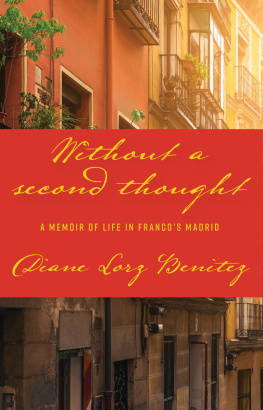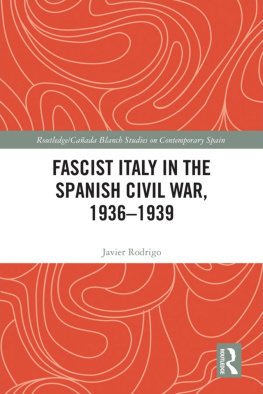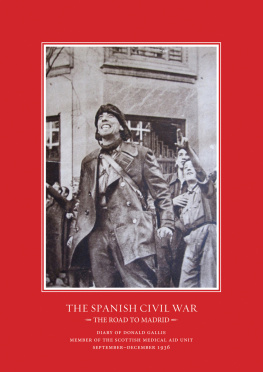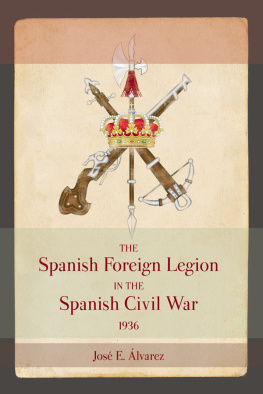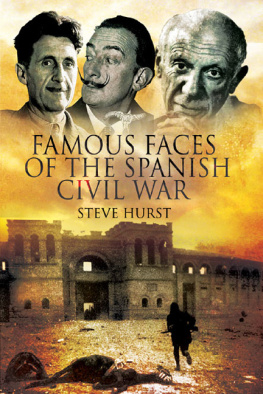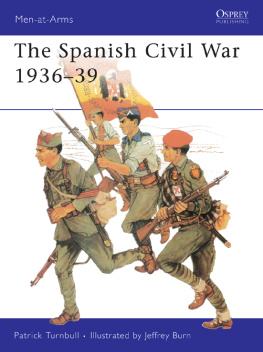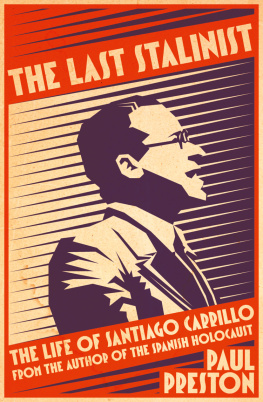
This book examines the most polemical atrocity of the Spanish civil war: The massacre of a maximum 2,500 political prisoners by Republican security forces in the villages of Paracuellos and Torrejn de Ardoz near Madrid in November/December 1936. The atrocity took place while Santiago Carrillo later Communist Party leader in the 1970s was responsible for public order. Although Carrillo played a key role in the transition to democracy after Francos death in 1975, he passed away at the age of 97 in 2012 still denying any involvement in Paracuellos (the generic term for the massacres). The issue of Carrillos responsibility has been the focus of much historical research. Julius Ruiz places Paracuellos in the wider context of the Red Terror in Madrid, where a minimum of 8,000 fascists were murdered after the failure of military rebellion in July 1936. He rejects both revisionist right-wing writers such as Csar Vidal who cite Paracuellos as evidence that the Republic committed Soviet-style genocide and left-wing historians such as Paul Preston, who in his Spanish Holocaust argues that the massacres were primarily the responsibility of the Soviet secret police, the NKVD. The book argues that Republican actions influenced the Soviets, not the other way round: Paracuellos intensified Stalins fears of a Fifth Column within the USSR that facilitated the Great Terror of 193738. It concludes that the perpetrators were primarily members of the Provincial Committee of Public Investigation (CPIP), a murderous all-leftist revolutionary tribunal created in August 1936, and that its work of eliminating the Fifth Column (an imaginary clandestine Francoist organisation) was supported not just by Carrillo, but also by key members of the Republican government. In Autumn 2015 the book was serialised in El Mundo, Spains second largest selling daily, to great acclaim.
The cover illustration is detailed within the book.
Dr Julius Ruiz is Senior Lecturer in History at the University of Edinburgh. He has written widely on the Spanish Civil War and the Franco regime. His previous books, published in English and Spanish, are Francos Justice: Repression in Madrid after the Spanish Civil War (OUP, 2005) and The Red Terror and the Spanish Civil War: Revolutionary Violence in Madrid (CUP, 2014).
Sussex Studies in Spanish History
General Editor: Nigel Townson, Universidad Complutense, Madrid
Consultant Editor: Jos lvarez-Junco, Universidad Complutense, Madrid
Advisory Editors: Pamela Radcliff, University of California, San Diego Tim Rees, University of Exeter
Jos lvarez-Junco, The Emergence of Mass Politics in Spain: Populist Demagoguery and Republican Culture, 18901910.
Tom Buchanan, The Impact on the Spanish Civil War on Britain: War, Loss and Memory.
Andrew Dowling, Catalonia since the Spanish Civil War: Reconstructing the Nation.*
Hugo Garca, The Truth about Spain!: Mobilizing British Public Opinion, 19361939.
Irene Gonzlez Gonzlez, Spanish Education in Morocco, 19121956: Cultural Interactions in a Colonial Context.
Aitana Guia, The Muslim Struggle for Civil Rights in Spain: Promoting Democracy through Migrant Engagement, 19852010.
Patricia Hertel, The Crescent Remembered: Islam and Nationalism on the Iberian Peninsula.
Silvina Schammah Gesser, Madrids Forgotten Avant-Garde: Between Essentialism and Modernity.
David Messenger, LEspagne Rpublicaine: French Policy and Spanish Republicanism in Liberated France.
Javier Moreno-Luzn, Modernizing the Nation: Spain during the Reign of Alfonso XIII, 19021931.
Inbal Ofer, Seoritas in Blue: The Making of a Female Political Elite in Francos Spain.
Stanley Payne, Alcal Zamora and the Failure of the Spanish Republic, 19311936.
Mario Ojeda Revah, Mexico and the Spanish Civil War: Domestic Politics and the Republican Cause.
Elizabeth Roberts, Freedom, Faction, Fame and Blood: British Soldiers of Conscience in Greece, Spain and Finland.
Julius Ruiz, Paracuellos: The Elimination of the Fifth Column in Republican Madrid during the Spanish Civil War.
Guy Setton, SpanishIsraeli Relations, 19561992: Ghosts of the Past and Contemporary Challenges in the Middle East.
Manuel lvarez Tardo and Fernando del Rey Reguillo (eds.), The Spanish Second Republic Revisited.
Nigel Townson, The Crisis of Democracy in Spain: Centrist Politics under the Second Republic, 19311936.
Nigel Townson (ed.), Is Spain Different?: A Comparative Look at the 19th and 20th Centuries.
* Published in association with the Caada Blanch Centre for Contemporary Spanish Studies and the Catalan Observatory, London School of Economics.
A full list of titles in the series is available on the Press website.
The issue of Paracuellos has become a crucial subject for the development of our research on history Ruiz has given us a great deal of time to provide a rigorous investigation of the events Thanks to Ruiz we can now say that Paracuellos was an atrocity committed by Republican leaders, or better put, those on the Republican side who violated the legality of the regime that they defended. Jorge M. Reverte, El Pais, 2 July 2016
Julius Ruiz has done a splendid reconstruction of those events [the Paracuellos massacres] with the erudition and knowledge that has made him essential reading on the repression in those years. A study that will survive the test of time. Octavio Ruiz Manjon in El Cultural (El Mundo), 22 January 2016
Ruiz definitively shows that the crimes [of Paracuellos] were carried out by Spaniards and that it is absurd to minimise their responsibility by attributing the initial idea to the Soviets. Similarly, he establishes we hope definitively that the false prisoner evacuations and the executions on the bank of the Jarama [river] was not an isolated event. Sergio Campos, Revista de Libros, January 2016
Copyright Julius Ruiz, 2017.
Published in the Sussex Academic e-Library, 2017.
SUSSEX ACADEMIC PRESS
PO Box 139
Eastbourne BN24 9BP, UK
and simultaneously in the United States of America and Canada
All rights reserved. Except for the quotation of short passages for the purposes of criticism and review, no part of this publication may be reproduced, stored in a retrieval system or transmitted in any form or by any means, electronic, mechanical, photocopying, recording or otherwise, without the prior permission of the publisher.
British Library Cataloguing in Publication Data
A CIP catalogue record for this book is available from the British Library.
ISBN 978-1-78284-301-6(e-pub)
ISBN 978-1-78284-302-3 (e-mobi)
ISBN 978-1-78284-303-0 (e-pdf)
This e-book text has been prepared for electronic viewing. Some features, including tables and figures, might not display as in the print version, due to electronic conversion limitations and/or copyright strictures.
Contents
Series Editors Preface
N IGEL T OWNSON
Over the last two decades the most controversial topic in the history of twentieth-century Spain has been the repression of the Civil War (193639) and the early Franco dictatorship. Up to the 1990s, little research had taken place. Estimates of the number of victims were often based on speculation, inadequate sources and the subjective memory of those that lived through these blighted years, invariably resulting in wildly inaccurate figures. As recently as 1998, Michael Richards, in


